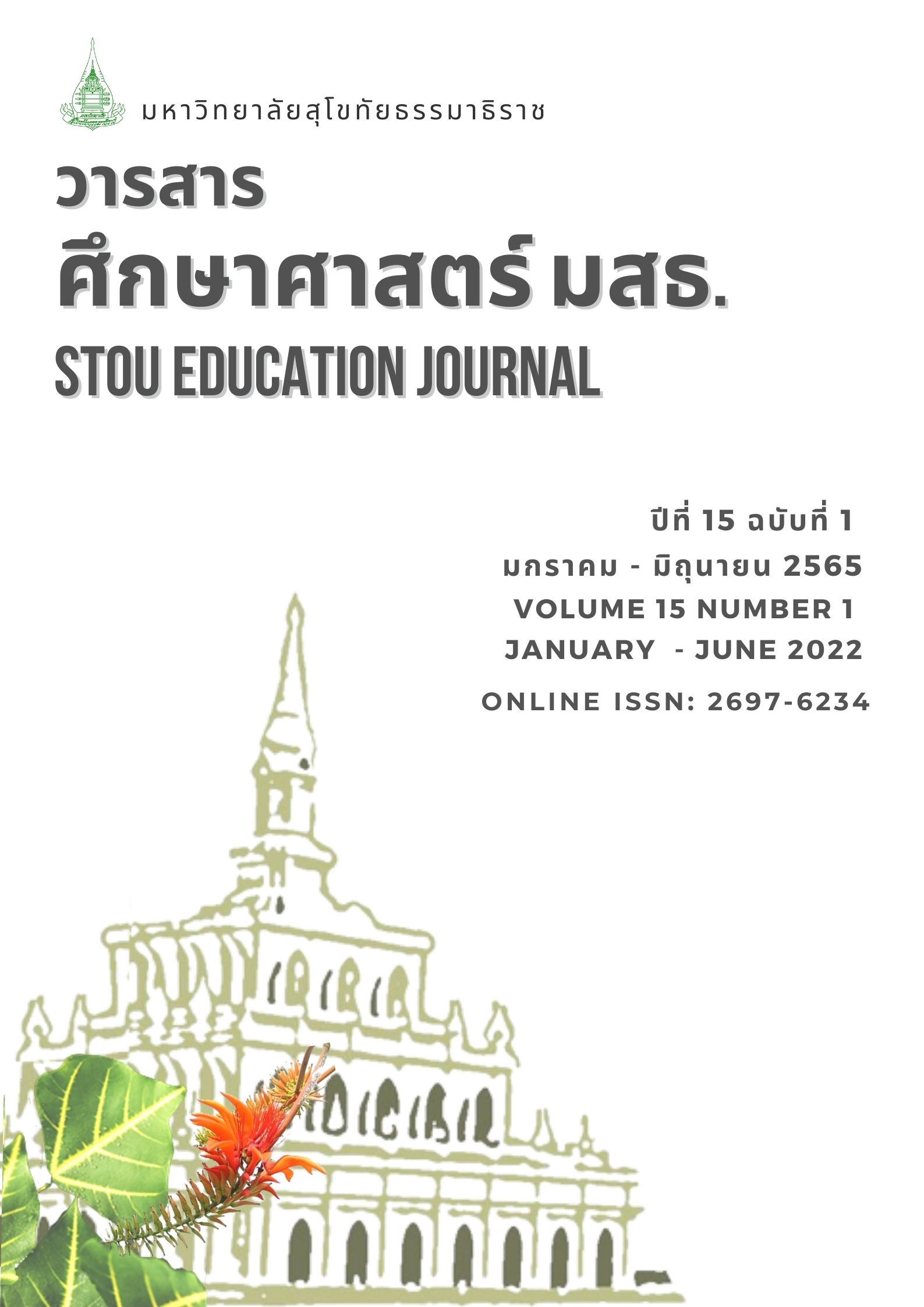A Measurement and Evaluation Model in Educational Institutes to Support Learners in Achieving Desired Educational Outcomes Based on the 2018 National Education Standards
Main Article Content
Abstract
This research aimed to develop measurement and evaluation models in educational institutes to support students in achieving desired educational outcomes based on the 2018 National Education Standards. The key informants, who relayed information on measurement and evaluation in educational institutions, were 489 school administrators and 1,707 teachers, selected by multi-stage sampling from primary schools, formal and non-formal education institutes, vocational schools, and university demonstration schools. The interviewees, who provided information on measurement and evaluation trends, were 10 educational administrators responsible for policy-making in educational agencies and academics. The individuals who were in charge of inspecting the quality of the models were 40 school administrators and teachers from all education levels, supervisors of the Primary Educational Service Area Office, measurement and evaluation experts, and educational experts. The research tools were questionnaires for school administrators and teachers, an interview, group discussion topics, and measurement and evaluation models. The data were analyzed by using frequencies, percentages, means, standard deviations, and content analysis. The results revealed that firstly, the desired measurement and evaluation models based on the 2018 National Education Standards were comprised of five factors, which were the principles, the objectives, the system and mechanics, the implementation and evaluation method, and the factors for the model’s success. Secondly, the models met the standards for quality in a highly satisfactorily manner in terms of benefits, appropriateness, practicality, and accuracy.
Article Details
References
ชิรวัฒน์ นิจเนตร. (2560). การวิจัยพัฒนารูปแบบทางสังคมศาสตร์และการศึกษา. วารสารราชภัฏสุราษฎร์ธานี, 4(2), 71 – 102.
ธีระ รุญเจริญ. (2550). ความเป็นมืออาชีพในการจัดและบริหารการศึกษายุคปฏิรูปการศึกษา. แอล.ที.เพรส.
ยานี สังข์ศรีอินทร์. (2564). การพัฒนาสมรรถนะด้านการวัดและประเมินผลการเรียนรู้ตามกรอบมาตรฐานคุณวุฒิระดับอุดมศึกษาแห่งชาติ โดยประยุกต์ใช้การประเมินแบบเสริมพลัง สำหรับอาจารย์ มหาวิทยาลัยการกีฬาแห่งชาติ [วิทยานิพนธ์ปริญญาดุษฎีบัณฑิต ไม่ได้ตีพิมพ์]. มหาวิทยาลัยสุโขทัยธรรมาธิราช.
วาโร เพ็งสวัสดิ์. (2553). การวิจัยพัฒนารูปแบบ. วารสารมหาวิทยาลัยราชภัฏสกลนคร, 2(4), 1– 16.
ศิริชัย กาญจนวาสี. (2550). ทฤษฎีการประเมิน (พิมพ์ครั้งที่ 5). สำนักพิมพ์แห่งจุฬาลงกรณ์มหาวิทยาลัย.
สำนักงานเลขาธิการสภาการศึกษา. (2562ก). มาตรฐานการศึกษาของชาติ พ.ศ. 2561. 21 เซ็นจูรี่.
สำนักงานเลขาธิการสภาการศึกษา. (2562ข). รายงานผลการวิจัยแนวทางการนำมาตรฐานการศึกษาของชาติสู่การปฏิบัติ. 21 เซ็นจูรี่.
สำนักงานเลขาธิการสภาการศึกษา. (2565). รูปแบบการวัดและประเมินการเรียนรู้ในสถานศึกษาที่ส่งเสริมผู้เรียนให้เกิดผลลัพธ์ที่พึงประสงค์ของการศึกษาตามมาตรฐานการศึกษาของชาติ พ.ศ. 2561. สำนักงานเลขาธิการสภาการศึกษา.
อุทัย บุญประเสริฐ. (2546). หลักการบริหารแบบใช้โรงเรียนเป็นฐาน. สำนักพิมพ์แห่งจุฬาลงกรณ์มหาวิทยาลัย.
Eisner, E. (1976). Education connoisseurship and criticism: Their form and functions in education evaluation. Journal of Aesthetic Education, 39(2), 192 - 193.
Stufflebeam, D. L. (1994). Empowerment evaluation, objectives evaluation, and evaluation standards: Where the future of evaluation should not go and where it need to go. Evaluation Practice, 15(3), 321 – 338.


